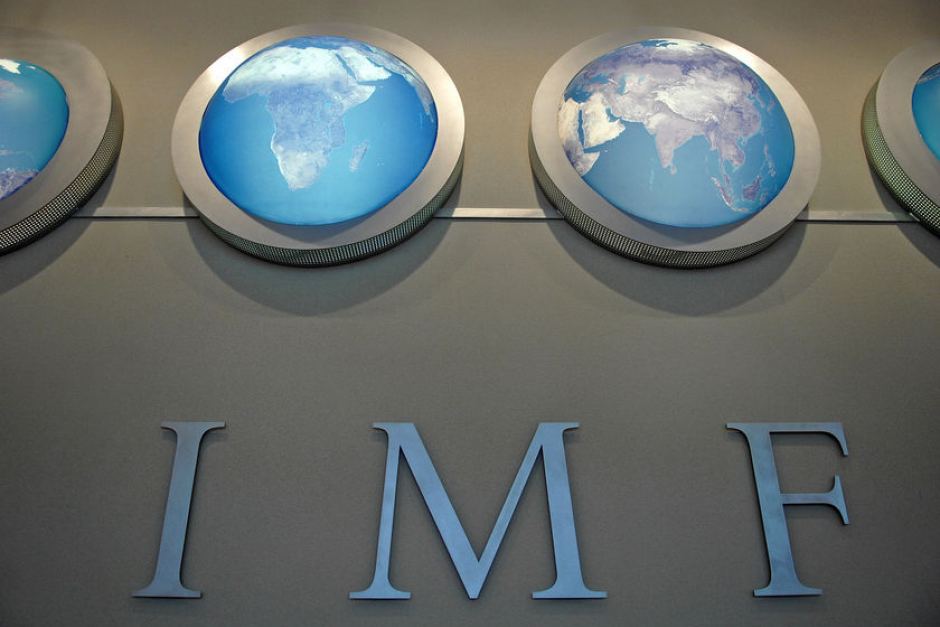Category: Business, Economics and Finance / Budget / International Aid and Trade / International Financial Institutions
Australia should 'boost infrastructure spending to protect AAA-credit rating'
Friday, 2 Dec 2016 14:06:58 | Sue Lannin

The IMF says debt financed infrastructure investment could be growth enhancing for Australia. (Jonathan Ernst: Reuters)
Australia should borrow more to boost infrastructure spending to protect against a global economic downturn, even if it means a slower reduction in the budget deficit, the International Monetary Fund (IMF) says.
IMF deputy managing director Zhang Tao told the ABC that more Government spending would increase growth and help protect Australia's AAA-credit rating.
Global credit ratings agency Standard & Poor's has threatened to downgrade Australia's top investment ranking if the budget does not look like it will return to surplus by 2020-2021.
Mr Zhang, the former deputy governor of the People's Bank of China and the IMF's executive director for China from 2011 to 2015, said Australia should slow down the pace of spending cuts and borrow more to fund new infrastructure projects.
"By exploring the growth enhancing measures including the debt financed infrastructure investment that can be growth enhancing," Mr Zhang told The World Today.
"The eventual result will improve the growth prospects in the sense of consolidating the rating rather than undermining it."
That is in contrast to the Federal Government's plan in the May budget to reduce the deficit as quickly as possible and bring the budget back to balance by 2021.
IMF says budget surplus could return by 2021
Late last month, Treasurer Scott Morrison, admitted the federal budget may not return to balance by 2021 and the forecasts would be updated on December 19 in the mid-year budget update.
Mr Zhang said Australia's budgetary position was strong enough to allow for a rise in Government borrowing and the budget could be still returned to surplus by 2021.
"The Australian fiscal stance stands relatively better compared to other advanced countries," he said.
"The fiscal deficit, the current years are missing the target, and there is a debate whether or not the consolidation should be at a greater pace.
"In the IMF staff view, it would be better if the pace could be more gradual so that the process can be more growth friendly in that we will have a growth enhancing impact by the end of 2021."
Mr Zhang was in Sydney to attend an IMF regional conference where he spoke about how Asian countries need to step up their spending on quality infrastructure even if it means increasing public debt, because the growth created could reduce debt to GDP ratios, which indicates a government's ability to pay back its debts.
But he noted that infrastructure projects needed to be better managed because the IMF estimated around one third of public investment was lost to waste, corruption or bad management.
Australia should be able to cope with Chinese downturn: IMF
The IMF has also warned about the risks of Australia's high house prices.
Mr Zhang downplayed the risk of a sharp slowdown in China triggering home price falls in Australia, and said Australian authorities had already put in place measures to cool the housing market.
"There are concerns on the housing market in Australia... but we consider the housing vulnerabilities as of now are pretty much local," he said.
 Photo:
Zhang Tao says rising protectionism in trade policies will be a significant challenge for 2017. (Supplied: IMF)
Photo:
Zhang Tao says rising protectionism in trade policies will be a significant challenge for 2017. (Supplied: IMF)
He said Australia should be able to cope with a steep economic downturn in Asia, including China.
"I think Australia is well positioned to handle those shocks through its flexible exchange rate, through its flexible monetary policy stance... and we do believe Australia has the fiscal space to boost demand whenever it's needed."
In October, the IMF slightly cut its forecast for global growth for 2016 and 2017 citing the risks of slower US growth, the impact of Britain leaving the European Union, and China's economic transformation as it shifts away from an export driven to a consumer driven economy.
Since then US economic growth has picked up and the US Federal Reserve is considering raising official US interest rates this month.
Mr Zhang said it is too early to say what impact the policies of US President-elect Donald Trump will have on the global economic outlook.
"We at this stage still find that it is too early to tell what exactly the impact might be because the new administration has not laid out in a comprehensive way their economic policy package yet," he said.
Mr Zhang said the global economy faced a lot of challenges in 2017 including rising protectionism in trade policies.
- About Us
- |
- Terms of Use
- |
-
 RSS
RSS - |
- Privacy Policy
- |
- Contact Us
- |
- Shanghai Call Center: 962288
- |
- Tip-off hotline: 52920043
- 沪ICP证:沪ICP备05050403号-1
- |
- 互联网新闻信息服务许可证:31120180004
- |
- 网络视听许可证:0909346
- |
- 广播电视节目制作许可证:沪字第354号
- |
- 增值电信业务经营许可证:沪B2-20120012
Copyright © 1999- Shanghai Daily. All rights reserved.Preferably viewed with Internet Explorer 8 or newer browsers.




 Send to Kindle
Send to Kindle